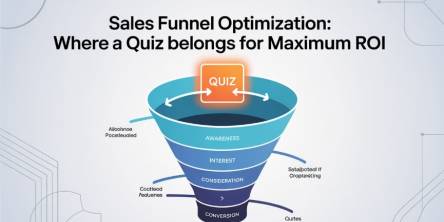Outsourcing Mobile App Development: Things to Keep in Mind

According to a recent study, the world is well on its way to having more than six billion smartphone users across the globe by next year. Researchers are also of the opinion that by 2022, the number of total app downloads is likely to be as much as 258.2 billion. If nothing else, these figures serve to show that the mobile app industry is poised to observe even more robust growth in the future. So, what does this mean for businesses? Well, among other things -- a cost-effective and efficacious way to develop mobile apps. That method and the world agrees is outsourcing.
Why? Well, because it has far too many benefits. For starters, it helps companies significantly cut reduce their overall costs. Then there's also the fact that outsourcing mobile app development allows the company to achieve a quicker time-to-market. Moreover, if you thought that that's all it has to offer, you'd be wrong. Outsourcing also gives unfettered access to a vast pool of accomplished professionals who have the skills required for the successful execution of your development project. Also, let's not forget that it also gives you access to consistent as well as persistent to round-the-clock support and assistance with maintenance.
With that being said, there's a good chance that you either lack the expertise or the time needed to build an app. It means that you will most definitely need to turn to an external source of assistance, such as an app development company. Therefore, it is essential that you pay your attention to the process as well as the vendor you shortlist. To help you with that, here's a list of some factors you should reflect on before you outsource your mobile app development project.
- Understand your business' needs: You wouldn't believe just how many companies forget to evaluate their business requirements before taking a decision. Nonetheless, this should be the starting point in the process. So, be sure to outline the primary aim that the mobile app will fulfill and don't forget to be precise about your needs.
- Understand the budget: It is essential to understand that mobile app development costs are based on the features integrated into the app and also by its category. So, it would be prudent to check out other apps in the group you are targeting and also factor in the intricacy involved in the development of your app. This way, you will have a clearer picture of the kind of budget you will need for it.
- Check if the vendor outsources: You may not realize this at first, but several vendors in the market are necessarily just middlemen; they acquire a contract and then outsource it to someone else. You may not have an issue with that, but it is vital to clarify this before you start working with them. Among other things, it will help you gauge the transparency of your selected vendor's operations.
- Clarify who owns the rights to the code: Who owns the code is a critical part of the process, so it is imperative this part of the conversation is clarified before initiating the development process. Moreover, if the vendor wants to own the code, the most important ramification is that you will end being dependent on them for all maintenance needs as well as any updates for the app. Then there are also the legal ramifications of code ownership. Long story short, no matter what you decide, be sure to state it explicitly and see to it that it is included in the contract.
There is no doubt that a software development company partnership brings an abundance of benefits with it. However, to ensure the success of this endeavor, you'd do well to keep the factors above in mind.
Similar Articles
Every sales funnel has one core goal: turn attention into revenue as efficiently as possible. Yet many funnels leak value at critical stages—visitors bounce, leads go cold, and sales teams chase prospects who were never a good fit.
Decentralized Finance (DeFi) has transformed how users earn passive income through blockchain-based financial systems. Among its most popular use cases,
Staying organized can feel like a full-time job. Between meetings, deadlines, and personal commitments, it’s easy to get overwhelmed.
Choosing the right GIS mapping software depends on what you need to accomplish. Some platforms cater to developers who want to build custom applications from scratch.
For data intensive industries such as insurance, the global business landscape is undergoing a profound transformation. Thanks to all the relentless technological innovation, this shift presents both significant challenges and unparalleled opportunities for modernization of the insurance sector.
Organizations are always looking for newer technologies to aid their operations. So, this hunt revolves around solutions that offer not only agility and scalability but are also cost-effective.
Not long ago, the idea of multiple AI agents working together, each with a specific role, collaborating to solve problems, felt like science fiction.
In today’s data-driven world, choosing the right business intelligence (BI) platform can make or break your organization's analytics success.
We all know that companies today are no longer limited to a single physical location. Work processes are also no longer strictly isolated.









